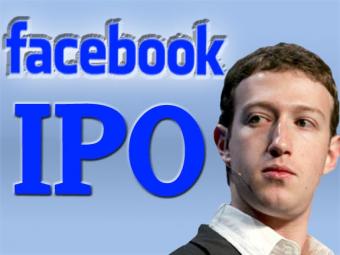Facebook is seeking $5 billion in the company’s initial public offering, almost three times the size of the previous tech IPO record-holder (Google, with $1.7 billion, in 2004). Famously private about details (well, their own, anyway), Facebook’sIPOfiling has provided an enlightening glimpse into the particulars of the top social media company’s real business.
In many ways, it’s no wonder that Facebook kept their finances under wraps for so long. The company’s own “Summary Risk Factors” provide a number of very good reasons not to invest in Facebook. We’ve combined them into a few common themes, and added some details that the company neglected to mention.

1. The Limits of Growth. From the IPO filing: “If we fail to retain existing users or add new users, or if our users decrease their level of engagement with Facebook, our revenue, financial results, and business may be significantly harmed.” Plainly speaking, most of the people who want to be Facebook users are already there.
Saturation and Penetration
In the US, that’s about 75% ofthepopulation, and US Facebook growth has slowed to 16% in the past year. Looking elsewhere, several other countries (such as China, Japan, and Russia) have proven to be all but impenetrable due to content-related barriers (i.e., censorship) or simply from more popular local competition (VKontakte, Cyworld, Mixi, etc.).
Where does Facebook expect to see significant growth? India and Brazil, where the company has to compete with Orkut — yes, that’s Orkut. Google’s earlier social media venture, the target of much derision in tech circles, saw considerable success in both India and Brazil. Even if Facebook didn’t have to wean users from existing social media habits, there is no reason to be confident about the company’s ability to deliver regionally compelling content or advertising.
If Facebook cannot grow, then it must wring more from its existing user base. “In terms of engagement, Facebook has said over the years that around half of all users log on every day,” reports EricEldonofTechCrunch. “Nielsen [reports] that Facebook users spent an average of around 7 hours and 45 minutes on the site per month…” That’s a lot of time that could be spent generating revenue… but this number does not come close to truly representing ‘engagement’.
It’s no secret that a sizable portion of FB users continue to merely appear logged in, while their focus (or physical presence) is far away from any revenue-enhancing activity on the site. No solid numbers exist on the number of Facebook accounts which exist but don’t represent any revenue opportunity, and that’s a potentially large percentage — including temporary or otherwise abandoned accounts, users who block or simply ignore ads, accounts that purely exist to provide updates for organizations and interests, accounts for dogs and fictional identities, etc.
2. “Facebook was not originally created to be a company,” says CEO Mark Zuckerberg himself, in theletter accompanying the IPOfiling. Whether you take him at his word or not, the simple truth is that any money-making effort by Facebook is bolted on after the fact. The company has prospered from the ‘free and always will be’ approach, and you can bet that users will resist paying for anything that they’re accustomed to getting for free. This leaves a fairly narrow range of options for revenue.
Advertising
IPO: “We generate a substantial majority of our revenue from advertising. The loss of advertisers, or reduction in spending by advertisers with Facebook could seriously harm our business.” Could? Ad revenue growth slowed from 144% in 2009 - 2010 to 68.9% in 2010 -2011 (ad revenue totals: $764 million, or 98% of FB revenue, in 2009; $1.89 billion in 2010; and $3.15 billion (or 85% of revenue) in 2011).
“But advertisers still aren’t completely comfortable with Facebook’s ad vehicles,” writes ChristopherZinsli of theWallStreet Journal, “some of which – like sponsored stories – are seen as experimental and unproven. If advertisers don’t stick around, Facebook has few other revenue options to fall back on.”
The Zynga Factor
Zynga’s own IPO brought up similar issues. For one thing, the social game developer was criticized for being too tightly connected to Facebook, to which Zynga replied that it was actively looking for ways to expand beyond Facebook. Nearly all of Facebook’s non-advertising revenue (12%, or $445 million) is accounted for by Zynga. Facebook could suffer from their partner’s success OR failure — if Zynga’s games become less popular or more popular on another platform, Facebook would lose revenue. If Zynga becomes more successful in general, that 30% cut might start to seem too generous, and Facebook would lose revenue on renegotiation.
3. Let’s ask “why now?” IPO: “Our business is highly competitive, and competition presents an ongoing threat to the success of our business.” The most obvious answer to the question is that Facebook is now worried about Google’s success at integrating Google+ and other initiatives to its search results and advertising revenue. However, one unintentional side-effect of a Facebook IPO may be to weaken any anti-competitive investigations into Google (i.e., if Facebook proves itself to be more competitive, Google may have much less to worry about from US and EU regulators… which means that the cash-rich company will be able to concentrate more resources on overtaking Facebook’s social media lead).
Another answer? Maybe the “Zuckerberg Model” has become unsustainable.
Facebook’s CEO dismissed going public for years, and countless followed in Silicon Valley and elsewhere. Perhaps there isn’t any further to go, and there are no more investors who are willing to wait for a return; so the IPO is a way to cash out while the valuation is still artificially high. At the very least, Facebook has hit the SEC’s 500-shareholder ceiling, and must now make their financial records public anyway. This isn’t necessarily a negative, except that (as we’re seeing), this first round of disclosures has provided a number of less-than-encouraging details about the company’s prospects.
Who does Facebook follow? If we’re talking about top social networks, the answer is MySpace and Friendster — and Facebook readily admits that “other social networking companies that achieved early popularity have since seen their active user bases or levels of engagement decline, in some cases precipitously.”
If we’re talking about recent IPOs in the industry, the answer includes names such as Pandora, Groupon, and fellow-traveler Zynga. If FB shares behave in the same way, you can expect a quick and long-term drop below the IPO share price.
From the IPO: “The market price of our Class A common stock may be volatile or may decline, and you may not be able to resell your shares at or above the initial public offering price; and… substantial blocks of our total outstanding shares may be sold into the market as ‘lock-up’ periods end, as further described in ‘Shares Eligible for Future Sale.’ If there are substantial sales of shares of our common stock, the price of our Class A common stock could decline.”
In other words, as with most initial public offerings, there’s really very little ‘public’ involved ; only preferred investors (mutual funds, pension funds, and privileged customers of the underwriting or comanaging investment banks) will get a crack at the ‘buy low’ offering price. For the rest of us, that means an immediate discouragement to investing — because IPOs typically underperform for a 7 - 24 month period after the first-day close.
4. The Mobile Disadvantage. IPO: “Growth in use of Facebook through our mobile products, where we do not currently display ads, as a substitute for use on personal computers may negatively affect our revenue and financial results; Facebook user growth and engagement on mobile devices depend upon effective operation with mobile operating systems, networks, and standards that we do not control.”
This is a serious problem, because everyone in the tech world has seen the truth of Steve Jobs’ “Post-PC era” prediction for a few years already. Without a mobile strategy, the future will be uncomfortable for any tech company — let alone one based around bite-sized bits of interpersonal communication.
Facebook does not have its own platform, unlike Google’s Android or Microsoft’s Windows Mobile (and platform-agnostic upcoming Windows 8). The biggest problem (in the company’s view) is that the mobile ‘real estate’ on the FB app is too small to allow ads without ‘degrading the user experience.’ Another (perhaps bigger) issue is that both Apple and Google take the lion’s share of any in-app purchases already. Facebook would either have to settle for a minor secondary cut, or develop a compelling HTML5 web app to lure users away from their native OS-market app — a dubious proposition at best.
5. Privacy . IPO: “Improper access to or disclosure of our users’ information could harm our reputation and adversely affect our business…our business is subject to complex and evolving U.S. and foreign laws and regulations regarding privacy, data protection, and other matters. Many of these laws and regulations are subject to change and uncertain interpretation, and could harm our business.”
Facebook has a three-pronged privacy and security problem : 1) how FB’s privacy issues are perceived by users (and prospective users); 2) what third-parties (stalkers, hackers, app developers, and advertising partners) might be doing with data, and 3) how government regulators perceive Facebook’s handling of privacy and security issues.
There’s a running joke that most of the people who complain loudly each time Facebook has a privacy revelation or design change (such as the recent Timeline) end up grudgingly dealing with it and staying on — except that each time, more and more don’t. And among the ones that do, there is an increasing awareness of how to make one’s data as private as possible — resulting in less of the ‘product’ that Facebook is selling to advertisers and app-developers.
Government regulation
Whether due to privacy or competition, regulations present a wide range of possible “claims, changes to our business practices, increased cost of operations, or declines in user growth or engagement, or otherwise harm our business,” Facebook states. In a specific example, the payments system (until now mainly useful for Zynga revenue) has also cost Facebook because of charges for transmitter licenses and they“expect to apply for additional money transmitter licenses in the United States, which will generally require us to demonstrate compliance with many domestic laws in these areas.”
In addition to the extreme examples of the ‘Great Firewalls’ of China, Iran, and others, even many ‘friendlier’ governments are taking an active role in regulation. Complying with each jurisdiction could easily offset any benefits of growth, especially in the short-term when Facebook must also commit higher expansion costs.
Brett Pharis is a tech and business enthusiast who currently writes for Cabletv.com . You can follow him on Twitter @teachfro



